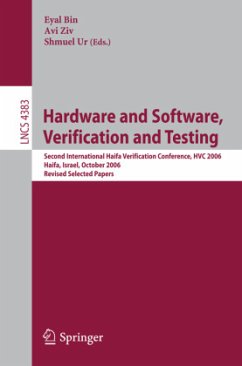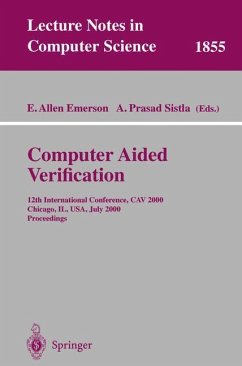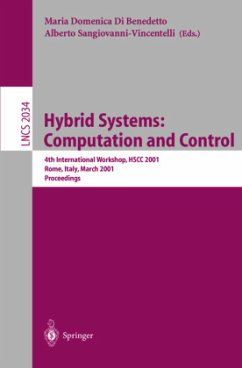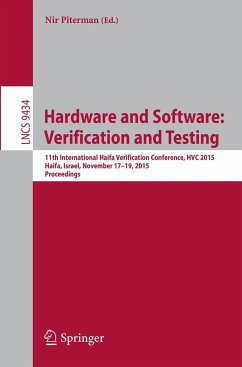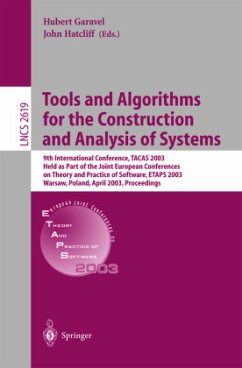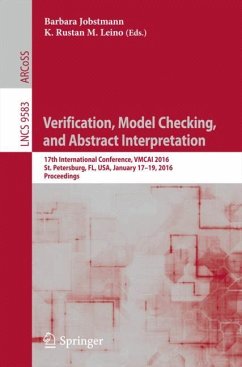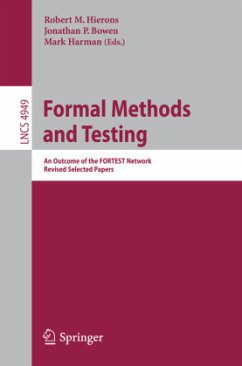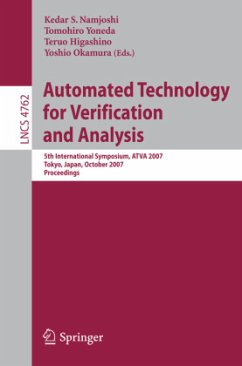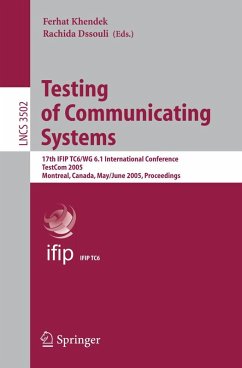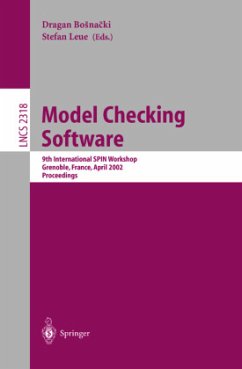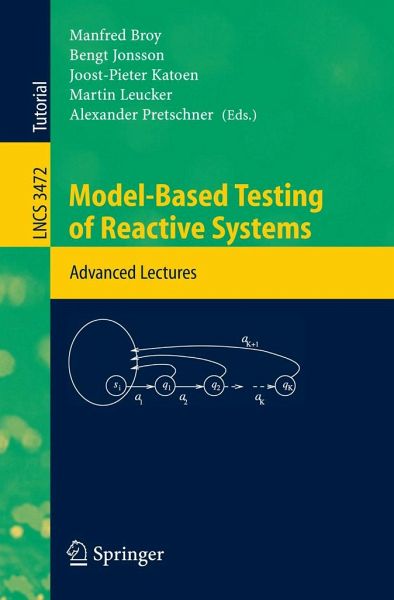
Model-Based Testing of Reactive Systems
Advanced Lectures
Herausgegeben: Broy, Manfred; Jonsson, Bengt; Katoen, Joost-Pieter

PAYBACK Punkte
20 °P sammeln!
Testing is the primary hardware and software verification technique used by industry today. Usually, it is ad hoc, error prone, and very expensive. In recent years, however, many attempts have been made to develop more sophisticated formal testing methods. This coherent book provides an in-depth assessment of this emerging field, focusing on formal testing of reactive systems.This book is based on a seminar held in Dagstuhl Castle, Germany, in January 2004. It presents 19 carefully reviewed and revised lectures given at the seminar in a well-balanced way ensuring competent complementary covera...
Testing is the primary hardware and software verification technique used by industry today. Usually, it is ad hoc, error prone, and very expensive. In recent years, however, many attempts have been made to develop more sophisticated formal testing methods. This coherent book provides an in-depth assessment of this emerging field, focusing on formal testing of reactive systems.
This book is based on a seminar held in Dagstuhl Castle, Germany, in January 2004. It presents 19 carefully reviewed and revised lectures given at the seminar in a well-balanced way ensuring competent complementary coverage of all relevant aspects. An appendix provides a glossary for model-based testing and basics on finite state machines and on labelled transition systems. The lectures are presented in topical sections on testing of finite state machines, testing of labelled transition systems, model-based test case generation, tools and case studies, standardized test notation and execution architectures, and beyond testing.
This book is based on a seminar held in Dagstuhl Castle, Germany, in January 2004. It presents 19 carefully reviewed and revised lectures given at the seminar in a well-balanced way ensuring competent complementary coverage of all relevant aspects. An appendix provides a glossary for model-based testing and basics on finite state machines and on labelled transition systems. The lectures are presented in topical sections on testing of finite state machines, testing of labelled transition systems, model-based test case generation, tools and case studies, standardized test notation and execution architectures, and beyond testing.





